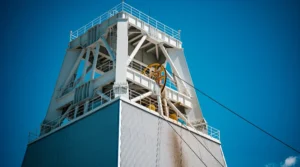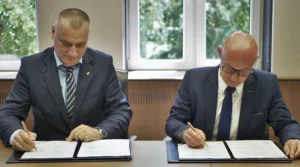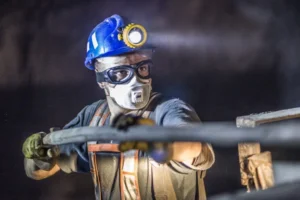What goes in Poland on 29th of May.
Merkel: no compromise on climate policy
The German Chancellor Angela Merkel said on Saturday after the G7 summit, which took place in Sicily, that she would not agree on any compromise regarding fighting climate change. The head of the German government disregarded the dispute over refugees. The discussion with the USA „was very difficult, if not to say very dissatisfying,” commented Merkel according to the dpa agency.
Merkel pointed out that during the G7 summit in Taormina, Sicily six states and the EU were against the USA, which is deliberating leaving the Paris climate change deal that obliges its signatories to reduce greenhouse gases emissions.
Merkel also announced she would not make any compromise on climate change. „The United States made clear that it has not yet made its decision and will not do so here,” explained Merkel. „We were very clear that we will not change our position,” said the chancellor on behalf of other summit participants. „Since there was no progress in our talks with the US, we could not unanimously support the Paris agreement,” said the chancellor.
US LNG to arrive in June in Poland
According to BiznesAlert.pl, the first LNG delivery from the USA to Poland will be transported by the Clean Ocean LNG tanker. The Szczecin Pilot Station informed the tanker would arrive at the Lech Kaczynski LNG Terminal in Świnoujście in 10 days – on 7 June 2017.
In April PGNiG, the Polish, state-owned oil and gas company, signed a spot contract for LNG supplies with US’s Cheniere Energy. The agreement was concluded thanks to the efforts of PGNiG’s London trading office. The price and volume of the gas have not been disclosed. However, the Polish company has revealed the contract was attractive and competitive in comparison to Russia’s Gazprom offer.
Tax benefits for entrepreneurs
Companies will be able to include in investment costs up to PLN 100 thousand at a time – proposes the draft amendment to the PIT and CIT act, which will be discussed by the government this Tuesday.
Jadwiga Emilewicz, Vice-Minister of Development, stated in the introduction to the new law that it is part of the „Responsible Development Plan”, aka Morawiecki’s Plan.
During the recent European Economic Congress in Katowice, Morawiecki himself has announced it would be adopted very soon.
The project will let businessmen write off up to PLN 100 thousand as fixed assets once a year, provided the amount will be more than PLN 10 thousand.
During the consultations on the amendments, the representatives of the ministry explained that businessmen will be allowed to write off as expenses the purchase of machines and other appliances, which will cost between PLN 10 and 100 thousand.
The project’s authors claim that this will encourage investors to spend money on new machines and appliances that will improve their companies’ competitiveness, and thus ensure better-paid jobs.
Businessmen who in the past few years have used, e.g. EU funds will be allowed to benefit from this mechanism as well. The new rule encompasses machines and appliances, but excludes immovables and means of transport.
EC wants to negotiate Nord Stream 2
„In the next few days, the European Commission will ask the Member States for a mandate to negotiate with Russia the terms and conditions on which the Nord Stream 2 pipeline could be constructed,” said Maroš Šefčovič, Vice-President of the European Commission, in charge of Energy Union during the GLOBESEC 2017 security conference in Bratislava.
When asked about Nord Stream 2 during the Bratislava conference, Šefčovič stressed that the application draft to Member States was almost complete, and in a few days the EC would present its request for a negotiation mandate on Nord Stream 2’s construction terms. The EC announced it would ask the Council for a mandate to negotiate with Russia a settlement on applying the basic regulations of the EU energy law to the pipeline.








